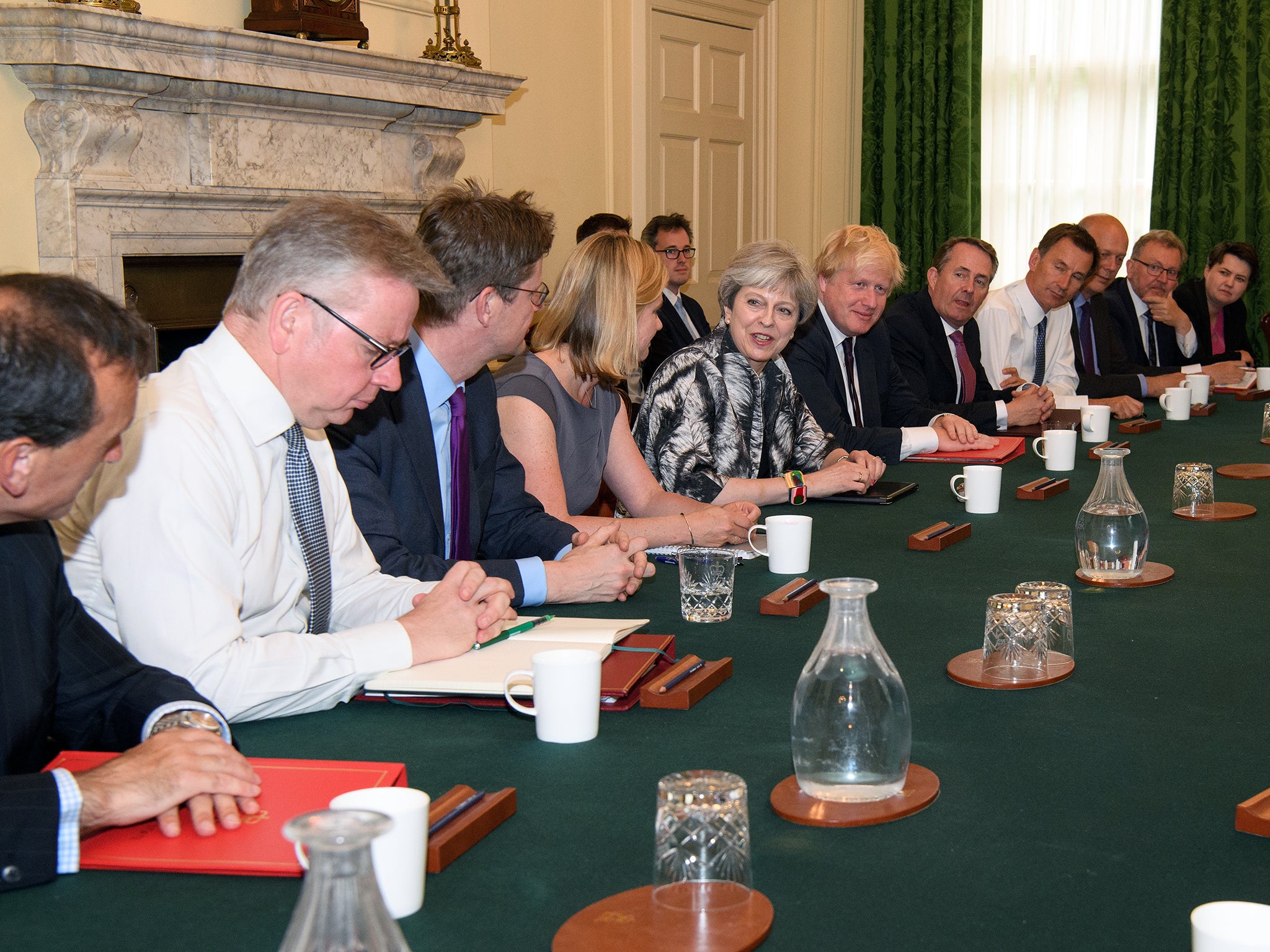This is Theresa May's chance to rescue social justice and a softer Brexit from the election wreckage
The election was, in part, an instruction to strike a different balance in talks with Brussels

Your support helps us to tell the story
From reproductive rights to climate change to Big Tech, The Independent is on the ground when the story is developing. Whether it's investigating the financials of Elon Musk's pro-Trump PAC or producing our latest documentary, 'The A Word', which shines a light on the American women fighting for reproductive rights, we know how important it is to parse out the facts from the messaging.
At such a critical moment in US history, we need reporters on the ground. Your donation allows us to keep sending journalists to speak to both sides of the story.
The Independent is trusted by Americans across the entire political spectrum. And unlike many other quality news outlets, we choose not to lock Americans out of our reporting and analysis with paywalls. We believe quality journalism should be available to everyone, paid for by those who can afford it.
Your support makes all the difference.Now that Theresa May has had a more consultative form of government forced upon her by the British people, here are some suggestions of the compromises she should make.
Apart from the hubris of advancing the interest of her party and strengthening her position in it, the only point of holding an early election was to prevent Labour or the House of Lords from sabotaging the Prime Minister’s chosen form of Brexit.
It follows, therefore, that the terms of Britain’s departure from the European Union are now up for debate again. There will be many Leavers – and possibly some Remainers too – for whom this will produce a groan. Can they not just get on with it, they cry. Well, no, because it is not a straightforward thing to extricate a nation from the web of agreements that have made it richer, safer and greener over the past 44 years.
Ms May interpreted the EU referendum as being not just a vote to leave the EU, but to leave the single market and the customs union too. She regards the vote as being one against immigration, and so she has prioritised ending free movement of people over all else. The Independent continues to believe that the views of the British public on this subject are more nuanced: that most people recognise that a balance has to be struck between reducing net immigration and preserving our prosperity, which they know depends on an open economy.
Our view, therefore, is that the election was, in part, an instruction to strike the balance in a different place from that which Ms May intended. On this, we thought that George Osborne, the editor of the London Evening Standard, and Yvette Cooper, the recent chair of the Home Affairs select committee, spoke for the nation. Mr Osborne suggested that the sensible course might be to agree to remain in the single market – allowing free movement to continue – for two years as a transitional arrangement after leaving the EU. Ms Cooper, meanwhile, suggested a cross-party commission, with Conservative and Labour members, to oversee the Brexit talks.
What is notable is that neither the Government nor the official opposition is prepared publicly to countenance such sensible attempts to find some middle ground in a divided nation. David Davis, the Brexit Secretary, said today that “80 per cent of the public voted for parties that reflect, respect the decision last year” – pointing to Labour’s acceptance in its manifesto that free movement would end. Although he did say that if anyone had an idea he would “take it on board”.
Labour, for its part, is less clear. Jeremy Corbyn and John McDonnell have insisted that Britain must leave the single market, although it was notable that Sir Keir Starmer, the shadow Brexit Secretary, did not accept that free movement was necessarily part of the single market. He seemed to think that Angela Merkel might be prepared to negotiate on this question.
Let us hope that behind the scenes, the virtues of sensible compromise will prevail, not just on the question of Europe but on the big subject of social justice. Most of the Conservative manifesto is now a dead letter, which means that the new Government can recover from its false start by adopting a more supportive approach to dementia care; by rescinding planned tax credits cuts for the working poor; and by looking again at a graduate tax to replace student loans.
Let us hope too that Ms May stands firm for women's rights and LGBT rights in her dealings with the Democratic Unionist Party, now that she has retreated from the idea of a full coalition.
However long Ms May lasts as prime minister, this election gives her the welcome chance to change course and to deliver a softer, more successful Brexit and a more socially just Britain.
Join our commenting forum
Join thought-provoking conversations, follow other Independent readers and see their replies
Comments